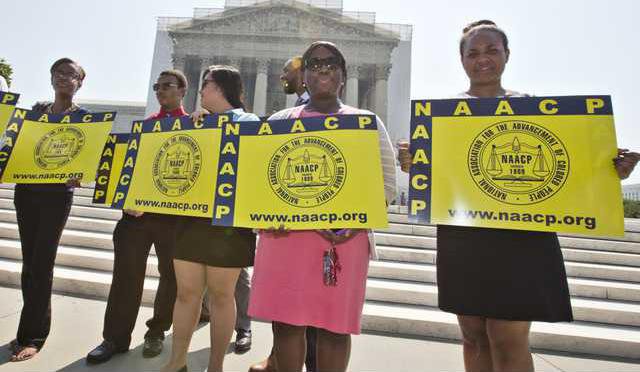WASHINGTON — A deeply divided Supreme Court threw out the most powerful part of the landmark Voting Rights Act on Tuesday, a decision deplored by the White House but cheered by mostly Southern states now free from nearly 50 years of intense federal oversight of their elections. Split along ideological and partisan lines, the justices voted 5-4 to strip the government of its most potent tool to stop voting bias — the requirement in the Voting Rights Act that all or parts of 15 states with a history of discrimination in voting, mainly in the South, get Washington's approval before changing the way they hold elections. Chief Justice John Roberts, writing for a majority of conservative, Republican-appointed justices, said the law's provision that determines which states are covered is unconstitutional because it relies on 40-year-old data and does not account for racial progress and other changes in U.S. society.
Supreme Court halts use of key part of voting law
Divided panel allows all states to change voting methods without federal OK

